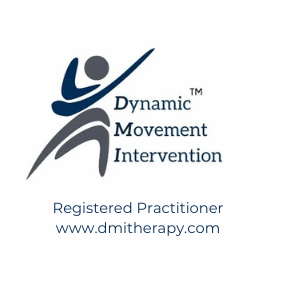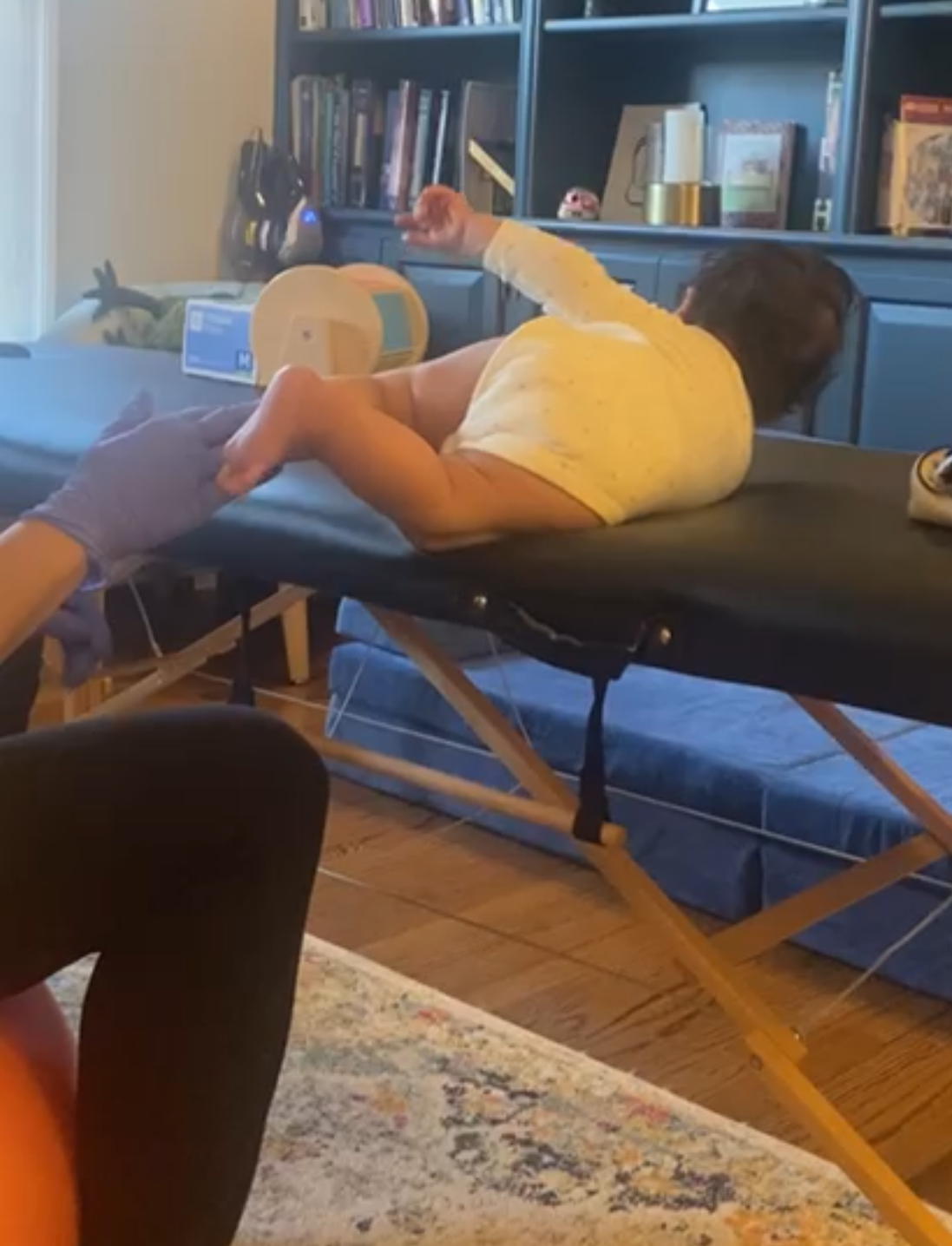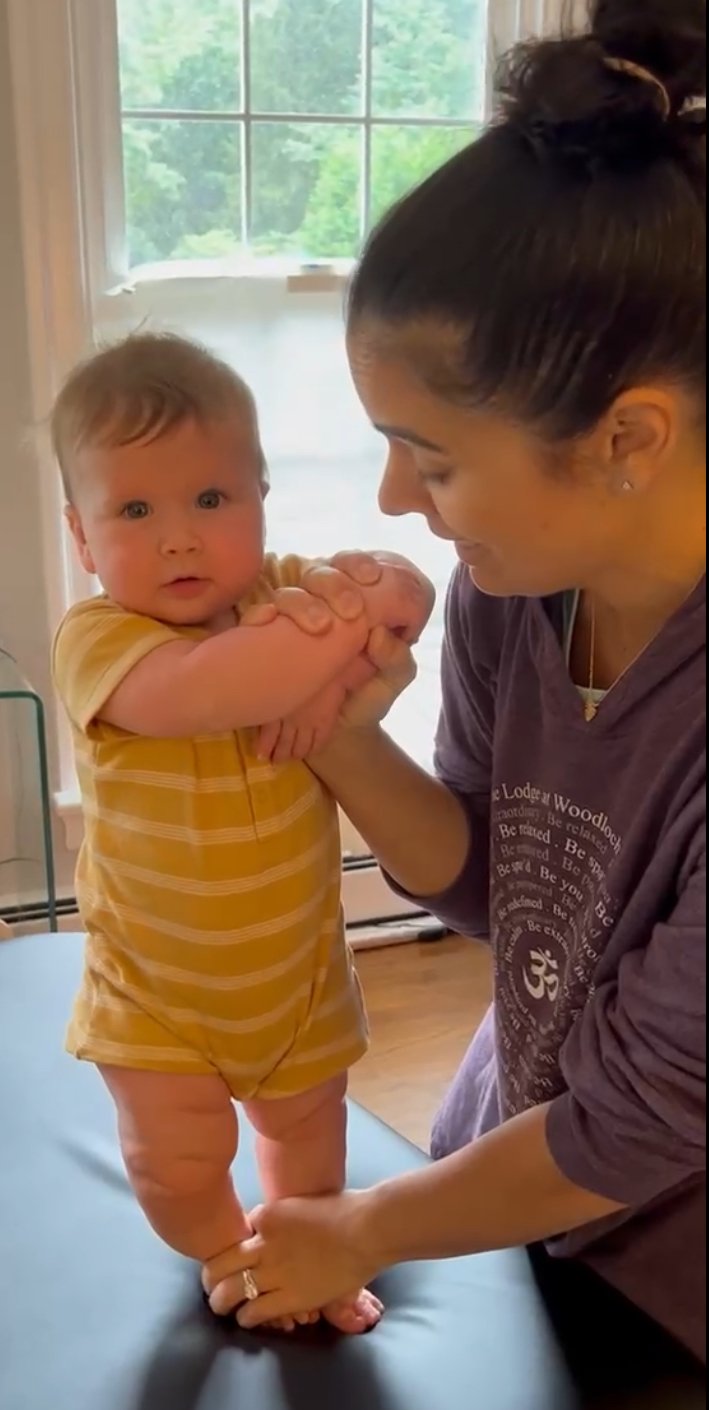DMI Level B Practitioner
What is DMI?
“Dynamic Movement Intervention (DMI) is a therapeutic technique used in physical and occupational therapy to treat children with motor delay by improving automatic postural responses and promoting progress towards developmental milestones. The goal of DMI is to provoke a specified active motor response from the child in response to defined dynamic exercises prescribed by the therapist. This comprehensive intervention incorporates current research on neurorehabilitation, technologies, and methodologies. DMI stimulates neuroplasticity to facilitate new neuronal connections and development of motor milestones.”
What are the main features?
DMI are a set of exercises chosen for your specific child that the provider will utilize during the session as well as demonstrate for you to use during a home program. One of the main characteristics of DMI is blocked practice. This means the exercise is performed 5x in a row in order to create muscle memory, improve performance each trial, and improve the technique of the handler. Research heavily supports both repetitive and intensive treatment protocols. From there, the child will practice “random” tasks meaning grouping a few together in a flow to be able to generalize the task in more of a daily routine.
Intensives
The intensive model has been utilized more and more over the past decade. In this model, a child is seen once or twice a day for one to two weeks. This repetitive practice creates exponential neuroplasticity as compared to weekly or biweekly treatment.





